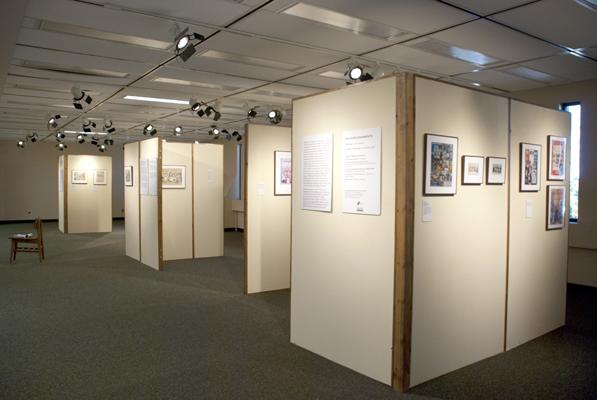On exhibit at the Beaumier Heritage Center is the Immigration Exhibit, providing a firsthand view into the attitudes and mentality of America from the Civil War to World War I, an era of mass immigration.
The collection involves numerous graphics relating to immigration, all from the time period.
The exhibit is on loan from Michigan State University and available for viewing until March 30.
The exhibit is opened Monday to Saturday from 10 a.m. to 4 p.m. in 105 Cohodas.
“We deal with a lot of immigration stories at the Center, dealing with immigration to the Upper Peninsula,” said Daniel Truckey, director of the Beaumier Heritage Center. “We felt that this exhibit has similar ideas and perspectives, which is a great way to tie it in with what we do.
In fact, this is the first time the exhibit has ever been in the Upper Peninsula.”
The images are all framed and each contain a caption beside them to explain what they show. They are also original documents from publications, not reproduced copies.
Many of the images contain caricatures and some display negative stereotypes of certain races.
“Immigration was a contentious issue just as it is today,” Truckey said. “These images show how incredibly racist certain politicians and journalists were during this time era.
“It’s important to see because people forget how immigrant groups were portrayed in the late 19th century.”
A certain work on display in the exhibit titled “Welcome to All” displays Uncle Sam reaching out with open arms to all the immigrants.
There are signs around that state, “free education, free lunch, no oppressive taxes, no knouts or dungeons.”
However, upon close observation it is noted that the immigrants all look like they are from northern Europe. Nowhere to be seen are any immigrants from any other area of the world.
“The venues the exhibit goes to are mostly universities or museums with historical societies because it is facilitating dialogue about tough issues,” said Marsha MacDowell, professor and curator at the MSU Museum. “Not every museum is comfortable with this material.”
The exhibit has already been to the Balch Institute for Ethnic Studies in Philadelphia, the Holocaust Memorial and Tolerance Center in Glen Cove, N.Y. and the Dreams of Freedom Museum in Boston.
The collection was donated to MSU by John and Selma Appel. When donated, the collection had more than 4,000 pieces which the Appels spent years collecting. The exhibit has been on tour close to four years.
“The Smithsonian really wanted the collection,” MacDowell said. “However, John Appel had spent most of his career at MSU and had worked with the MSU Museum, so he decided to donate it to them.
“Not only is the part of the collection on exhibit but faculty at MSU use it for teaching students.”
John and Selma Appel have both passed away since their donation over a decade ago but the exhibit is a well-known and respected resource to this day.
“Unfortunately in our society there is the notion that museums are just dusty repositories,” MacDowell said. “However they can act as forces of social change and education when they bring in collections accessible to exhibitions.”
For more information on the exhibit, call the Beaumier Heritage Center at (906) 227-3212.


























reinherzlaw.com • Mar 1, 2012 at 8:35 am
Karamojo got a good point. But if ever you have a problem regarding immigration, feel free to consult immigration attorneys. They analyze the specific facts of your case and determine all possible options. They can also help you get through the tangle of forms to get started with your immigration dreams.
Karomojo • Feb 23, 2012 at 5:17 pm
Why the dislike of immigrants? Why the anger? Remember, we stole this nation from the Native peoples and the Mexicans. And now shut the door to all others? I think not. Open society, open borders, open America. Its payback time. Think of how wonderful Marquette would be if it were not just some little town of 20,000 people but a vibrant diverse city of 500,000 people from many cultures. We have the room to expand and the resources. Use them to benefit all.
Bob • Feb 21, 2012 at 7:21 pm
Karamojo, that statement is so intelligent and insightful I am speechless.
Karomojo • Feb 17, 2012 at 5:59 pm
What we need is a open society with open immigration for all who want to come here. No border restrictions whatsoever. Full freedom of movement. Let the world enjoy American life. Stop the craziness and racism of border agents, wire fences, searches and deportations of hard working immigrants. Let them come. We have the room to accommodate tens of millions of new Americans.